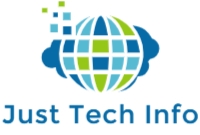Engaging potential users on a website is already a critical part of search engine optimization. There is no black-and-white script to help you with doing the entire job. But before you start doing Off-page, your website, and pages should be well-optimized to perform better. So, on-page SEO checklist is one of the critical components of a website. It helps you optimize your website and webpage to rank on search engines. We are the best digital marketing agency in USA to help you provide on-page SEO fundamentals today!
Table of Contents
Revealing Technical SEO Facts
On-page SEO is fundamental to website optimization so that search engines can crawl, index, and rank a website easily. The ultimate goal is to help you achieve a better ranking on search engines. But, the question is, how to do technical SEO? What are some proven tips and tricks?
Technical SEO- this is something tricky and divided into 3 tangible parts. So, the most important things are website crawling, indexing, and ranking. Let us cover the entire checklist.
Check Your Domain
Checking your domain URL is necessary for your website. This can impact how people can find you and makes a way to identify to recognize your website. The best digital marketing agency experts always recommend having a preferred domain for your website. This depends on you whether to choose a non-www or www version for your domain. While enabling SSL is a must for a website to provide better security.
Having both the www and non-www versions will be treated differently for a website. So, it is preferred to choose a specific version is recommended. You need to apply redirection to index.php, non-www, HTTP, and all other variants to specific domain URLs.
Update the SSL
SSL is also termed a Secure Socket Layer and is pretty important for your website. This helps you protect your website and make it more secure. Updating SSL can help websites to have better security with contact and payment information. SSL protection makes a website less likely to hack and protect them. Encrypted website domain names always begin with ‘https://’ rather ‘http://’.
After you are done with everything necessary for your website, always redirect the http version to HTTPS. Update your website URLs on the sitemap as well. You also need to make changes to your canonical and herflang tags.
Page Speed Optimization

Optimizing page speed is another important element. Page loading time should be less than or equal to 2.5 seconds for a better user experience. As per the data, increased load time will surely increase your bounce rates. Users won’t wait for more than 5 seconds for a website, and improving website load time must be a priority. It doesn’t only contribute to bounce rate, also determines your ranking. You can try these proven tips to improve page loading time:
- The first thing is to compress all the files. File compression allows for reducing CSS, HTML, and JS file sizes. This makes your website load faster and takes less space in web servers.
- It is necessary to audit all the redirection issues regularly. 301 redirects may seriously impact the speed of a website and you need to fix them on a daily basis.
- Mainly CSS and JavaScript codes may have a significant effect on the website performance. More efficient codes can improve page speed in many ways. You can also minify and compress code as necessary.
- Try using a cache plugin which can decrease the load time during repeated visits. This helps all returning users to get a faster loading speed for a website.
- Use asynchronous loading to avoid delays and gain an increased page loading time for your website. With synchronized code, a website can decrease all the delays and decreases page load times.
Website Crawling Checklist
Website crawlability is something very important from the technical SEO perspective. This way search bots can gain better access and information about your website. In case, these bots are restricted from crawling, they won’t rank or index your webpage. It is super important for you to check for the accessibility and crawlability of your website before starting the job.
- The first thing is to check the website’s XML sitemap. This is structured data of your website to help Google understand the site structure. You must not forget to keep it updated if there are no changes in the URL or adding a webpage.
- The second thing is to prioritize all the vital pages of your website for indexing. Always remove duplicate pages and fix broken links from your website manually. Remove all the outdated and unnecessary content from your website as possible.
- A website can have multiple different pages. All the pages should be organized properly so that crawlers can find and index web pages easily. URL structure says how everything is structured according to the needs.
- robots.txt works as an exclusion protocol for crawler bots. This is a protocol that disallows and allows you to crawl your website pages.
Website Indexing Checklist

Robots crawl your website and index your website pages to the search console. Here are a few important factors you must to rank your website on the search engine result pages.
- The most important thing is to unblock bots to crawl your web pages. It is always mandatory to ensure that bots are sent to the preferred pages set by the user. Checking all the things manually can help you find out the best solutions.
- Next thing is to remove all the duplicate content. It is also recommended to use canonical URLs considering your preferred pages. The wrong redirection may lead to potential issues with website indexing.
- Mobile friendliness is another important measure. Try for a mobile-friendliness test and check for all possible improvements.
- HTTP errors may occur many times. This may lead to return errors to search engines. Web crawlers may miss out on all the necessary information this way. So, it is necessary to check everything properly and resolve all the issues.
Conclusion
On-page SEO is all about considering proper adjustments to a website. This helps you improve your ranking in SERP and be updated with all the latest search engine guidelines. Setting up the right measures can help your website run effectively. So, while doing SEO, check all the guidelines provided in this blog.







I’m often to blogging and i really appreciate your content. The article has actually peaks my interest. I’m going to bookmark your web site and maintain checking for brand spanking new information.
It is in reality a nice and useful piece of info regarding On page seo. I’m happy that you just shared this helpful info with us. Thes Seo cheklist really helpfull for us.Please keep us up to date like this. Thanks for sharing.